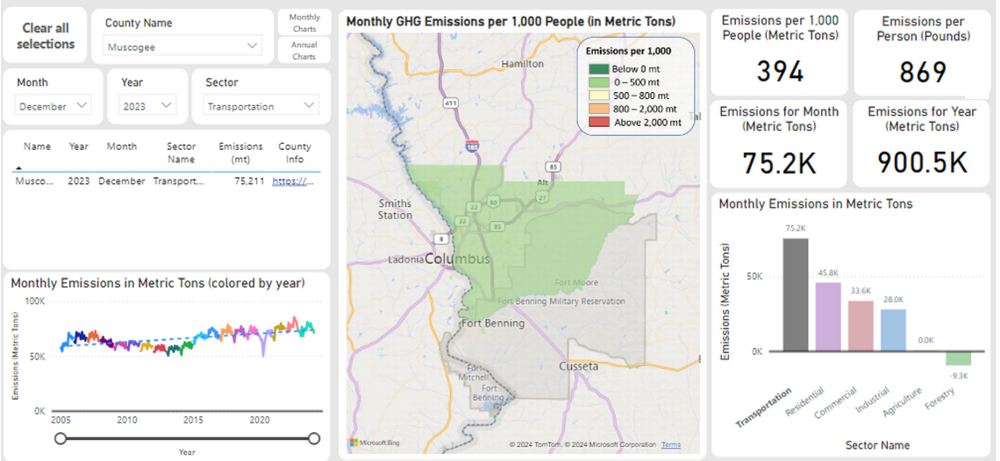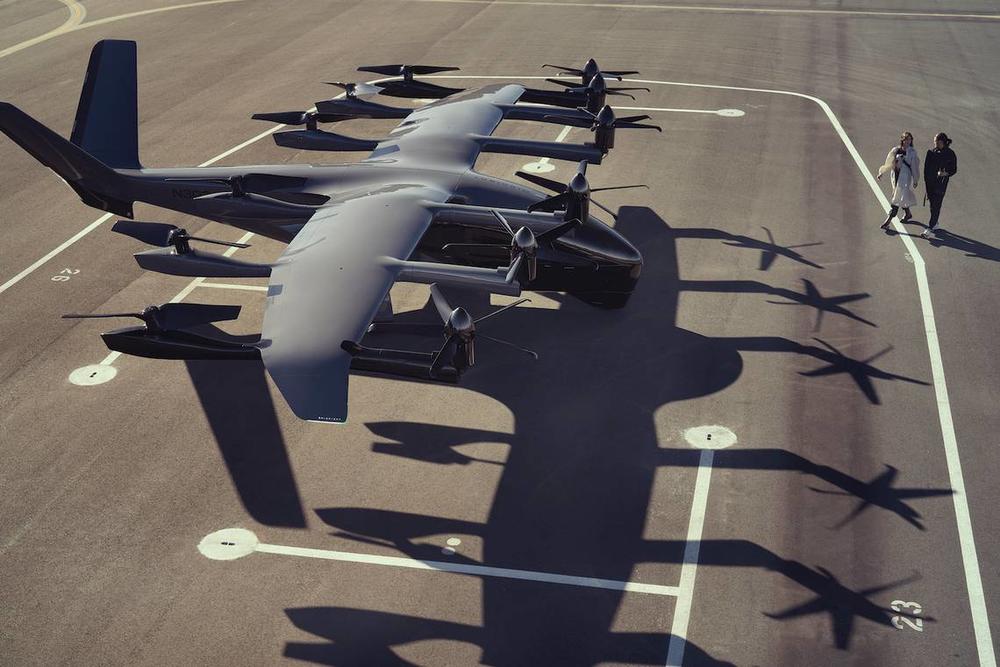
Caption
A California based company, Archer Aviation, plans to open a manufacturing center to build electric helicopters. The helicopters can be rented out like Ubers in hopes of tamping down on emissions.
Credit: Archer Aviation
|Updated: July 26, 2024 11:51 AM

A California based company, Archer Aviation, plans to open a manufacturing center to build electric helicopters. The helicopters can be rented out like Ubers in hopes of tamping down on emissions.
A billion-dollar company wants to replace taxis and rideshare apps such as Uber and Lyft with an electric helicopter service, and they plan to make the choppers in Georgia.
California-based air taxi tech company Archer Aviation will soon manufacture its electric helicopters, which they call “eVTOL’s” — electric vertical take off and landing — in Covington.
Yes, efforts are underway for air taxis to beat the commute and it’s set to begin in 2025 in cities like Los Angeles, San Francisco, New York and Miami, with eventual expansion into metro areas like Atlanta.
Archer believes it can combat wasted time in traffic congestion and create a safer and more sustainable mobility option in major cities with its zero-emission aircraft. Several airline companies are backing them, with recent announcements from Southwest and $215 million dollars in investments from Stellantis, Boeing and United Airlines.
A local company has gotten involved too: Columbus-based Synovus Bank announced in October a credit agreement of $65 million with Archer.
“(We) want to transform inter-city travel, replace the 60-90 minute commute by car that takes over an hour in traffic with a 10-15 minute electric air taxi flight that are safe, sustainable, low noise and cost competitive with ground transportation,” Tosha Perkins, chief people & partnerships officer at Archer Aviation, said in an email.
When completely built, the company’s manufacturing plant in Covington plans to produce up to 650 eVTOLs per year. There is a planned expansion of 550,000 square feet with production of 2,300 aircraft per year.
The $1.1 billion company is hiring 1,000 employees and plans to invest $118 million at the Covington facility over the next 10 years.
In 2022, traffic congestion cost the city of Atlanta $6 billion dollars in wasted time and wasted fuel. The price tag across 15 major U.S. cities was $224 billion, according to the 2023 Urban Mobility Report made by the Texas Transportation Institute.
The individual passenger in Atlanta wasted 82 hours, about 10 work days, said David Schrank, the senior research scientist of the mobility division and author of the yearly report out of Texas A&M.
“They spent $1,953.00 wasting gas and wasting time,” he said, adding that they get the value of time from the Bureau of Labor Statistics and average a wage number.
Congestion in places like Atlanta, New York or 15 other large cities that the Transportation Institute studies comes from “a ton of causes,” Schrank said. “But the two largest factors are too much demand hitting the roadways at peak hours, and incident delays like crashes, breakdowns and weather disruptions.”
The 300,000 or so vehicles that travel every day in Atlanta produce 23.3 million tons of carbon dioxide a year, according to the institute.
About 811,000 tons of those emissions, or about 3.5%, come directly from congestion and are wasted, Schrank said. That is almost the entire amount of all Muscogee County’s traffic pollution in the year 2023, which was 900,000 tons.

Muscogee County burned 900,000 tons of emissions from transportation in all of 2023, according to Drawdown Georgia’s tracker.
“You have to remove hundreds of thousands of vehicles during the peak period to significantly change those numbers,” Schrank said.
One way to remove vehicles is to put people in electric helicopters.
The specific price for an urban air mobility eVTOL ride has not been released by Archer, but the company said the cost will be similar to an Uber Black upon entering the market.
“The costs to decrease to a ‘Uber X’ range when the service scales,” Perkins added.
An Uber Black is a high-end Uber ride and an Uber X is an economy ride. While Uber prices can fluctuate depending on time and events, taking a ride from Peachtree City to Piedmont Park in Atlanta — about an hour car ride — was $165 in an Uber Black on a weekday afternoon, according to the app. An Uber X cost about $53 around the same time, according to the app.
Georgia Tech professor Laurie Garrow, who studies advanced models of travel demand and travel behavior, called Archer’s air taxis “a niche solution but not a solution for every city.”
The logistics of getting the air taxis to and from the exit and entrance points are difficult, she said.
Garrow said other challenges with electric aircrafts are sourcing the batteries and charging the aircraft. The grid’s source needs to be renewable and clean otherwise it just emits emissions to charge the craft.
“How you source these rare minerals is a challenge,” Garrow said. “If you charge them during peak period and draw energy off the grid–that is not clean or renewable–then you have a negative impact.”
The current prototype at Archer, named Midnight, can carry four passengers and clocks in at about 6,500 pounds. The aircraft can travel at up to 150 mph. It’s one of three company prototypes. Prototypes were built and tested near the company headquarters in San Jose, California.
Midnight has 12 electric engines and six independent battery packs, each powering a pair of diagonally opposite motors. This design is intended to allow the aircraft to complete a flight even if an engine or battery pack fails.

Archer’s Midnight eVTOL on the tarmac in the San Jose, California pilot office in 2022.
The aircrafts are currently being charged using advanced fast-charging systems developed by Beta Technologies. That company also installed the Southeast’s first eVTOL chargers in Augusta’s Regional Airport in March of 2023.
Archer says helicopters haven’t become a rideshare option because they are too noisy, have a bad safety record, and are expensive to operate.
Archer is powering Midnight with a proprietary battery pack through a Taiwanese company named Molicel, which has “40 years of leadership experience,” Perkins said in an email. “(We will) utilize a cylindrical type-2170 lithium-ion battery…they are the most reliable factor for aerospace with proven safe architecture.”
Unlike helicopters, “electric motors can be scaled down in size effectively which internal combustion engines simply can’t,” Perkins wrote.
The company received FAA certification in June, and is only one of two companies in the world to do so, despite dozens of other eVTOL companies vying for air taxi approval.
But Garrow also cautioned on the promised timeline of rolling these helicopters out.
“One of the things we’re seeing is many of the projects are overly optimistic,” she said. “It is a very challenging problem to get the aircraft certified and ensure manufacturing pipelines to ramp up ops quickly.”
Garrow said to check the AAM Reality Index to keep an eye out for the air taxi companies that are constantly pushing production goal
Earlier this month, Southwest Airlines signed a memorandum of understanding to develop operational plans across 14 airports in California.
“Southwest is eager to explore the convenience Archer’s air taxis could provide Customers flying Southwest at airports in busy urban areas,” Paul Cullen, vice president of real estate at Southwest Airlines, said in a press release.
This story comes to GPB through a reporting partnership with Ledger-Enquirer.